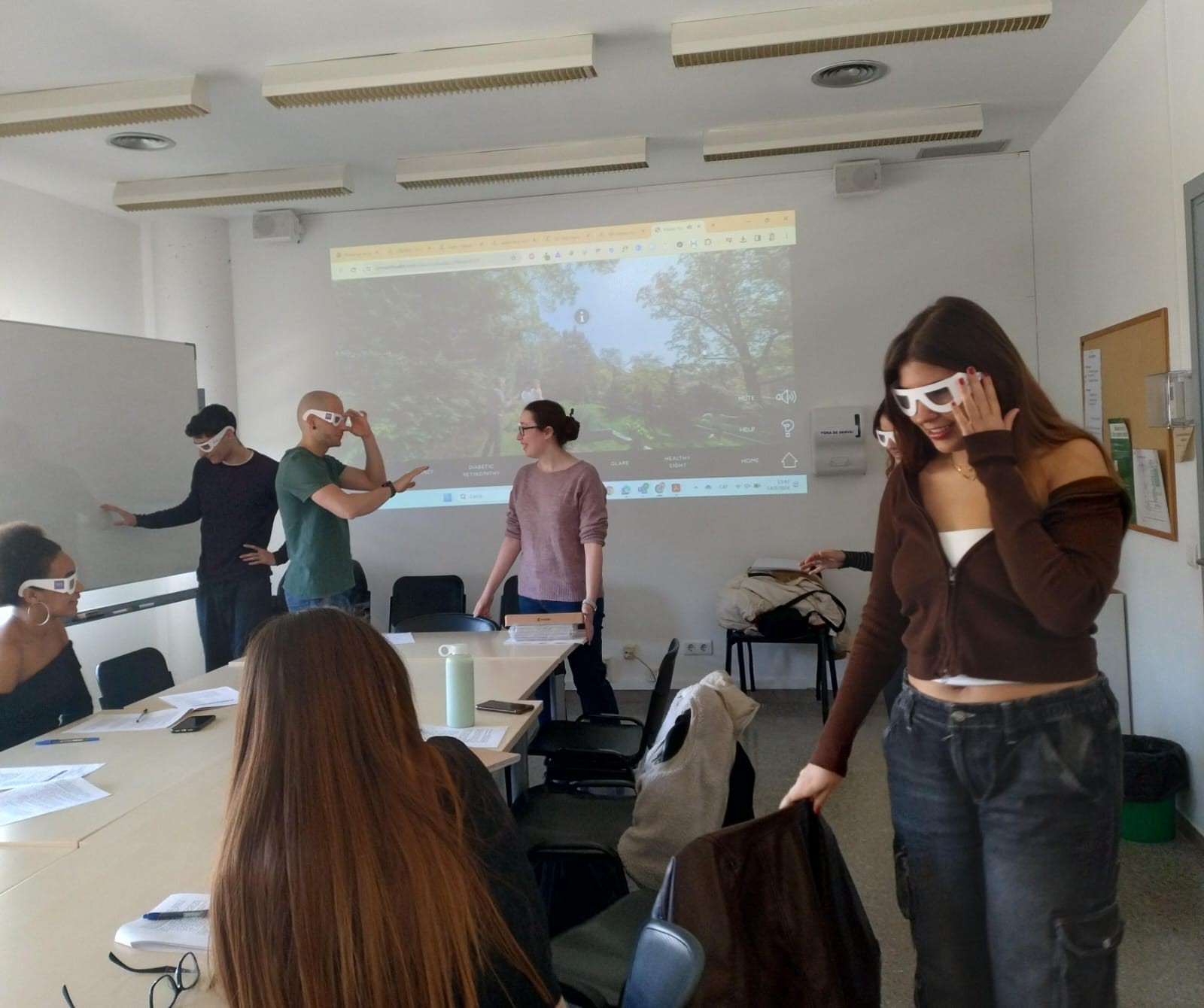The researchers Pujadas, Gunella, and McDonagh have trained the volunteers who will teach how to create sustainable and accessible 360° videos.
Young people at risk of social exclusion are more likely to experience academic failure: the lack of personalised support, the limited opportunities, and the complex social situations surrounding them ultimately lead to a loss of interest in school. To make education more encouraging and inspiring, the UAB’s solidarity foundation (FAS) created the CROMA 2.0 programme.
Marina Pujadas Farreras, Chiara Gunella, and Sarah McDonagh, researchers from the TransMedia Catalonia group, participated in CROMA 2.0 with "A green school for everyone", a training programme launched within the framework of the GreenSCENT project and directed towards FAS volunteers. These volunteers, students from UAB, will conduct workshops over the next few months, creating sustainable and accessible 360° videos in schools that enrol students at risk of social exclusion.
The training took place on the 13th and 14th of February. It was centred around technical training—regarding the use of audiovisual technologies—and a sensitivity course—to understand the need for accessibility. Among other things, participants were reminded that accessing information is a right, especially in matters of sustainability, as people with disabilities are one of the most vulnerable groups in the context of climate change.
Volunteers also learned how to introduce themselves and welcome others in Catalan Sign Language (LSC), and experienced firsthand what audiovisual accessibility is like for blind people through blind simulation glasses and videos without images and only audio descriptions. This project will continue until the end of spring.



